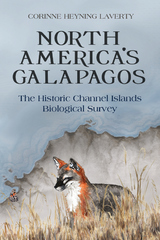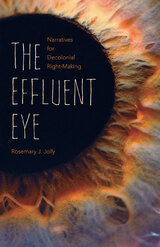
Rapid Ecological Assessment (REA) is a methodology developed by The Nature Conservancy to provide comprehensive and reliable information about biodiversity resources in situations where time and financial resources are limited. REAs utilize a combination of remote-sensed imagery, reconnaissance overflights, field data collection, and spatial information visualization to generate useful information for conservation planning.
Nature in Focus is an in-depth guide to the theory and practice of REAs, offering a detailed approach for assessing biodiversity in a rapid and integrative manner. It provides researchers with the essential tools and techniques they need to conduct an REA, and offers valuable advice about the planning and implementation aspects. The book:
- presents an overview of the REA methodology and sampling framework
- reviews all aspects of an REA: planning and management, mapping and spatial information, information management
- describes surveys of vegetation and fauna
- presents a generalized description of threat assessments
- explores the manner in which large amounts of data produced by different REA teams are integrated and synthesized into a cohesive set of management recommendations
- explains how the REA effort is documented, published, and disseminated
- offers a detailed REA case study
Also included is a set of twelve color maps that describe the sequence of mapping activities in the case-study REA, along with other map examples from a range of REAs. In addition to the case study, appendixes offer a full set of REA field forms for sampling, and a model "Scope of Work" that describes the nature of work to be conducted in an REA and outlines the roles and responsibilities of the participating organizations.
Nature in Focus presents the collective experience of more than ten years of REA field-testing. Conservation practitioners and biodiversity scientists who are involved with REA initiatives, along with managers, policymakers, and others involved with conservation programs will find the book a useful and nontechnical guide to an essential element of successful conservation.

This untold saga of adventure, discovery, and goals abandoned is juxtaposed against the fresh successes of a new generation of Channel Island scholars. Engagingly written, North America’s Galapagos illuminates the scientific process and reveals remarkable modern discoveries that are rewriting archaeological textbooks and unraveling the answer to the age-old question: how and when were the Americas populated?
Anyone interested in the work conducted behind closed museum doors will want to read this book—so will history buffs, environmentalists, scientists, and general readers curious about our world.
Visit the author's website: https://www.channelislandscalifornia.com/
READERS
Browse our collection.
PUBLISHERS
See BiblioVault's publisher services.
STUDENT SERVICES
Files for college accessibility offices.
UChicago Accessibility Resources
home | accessibility | search | about | contact us
BiblioVault ® 2001 - 2024
The University of Chicago Press









